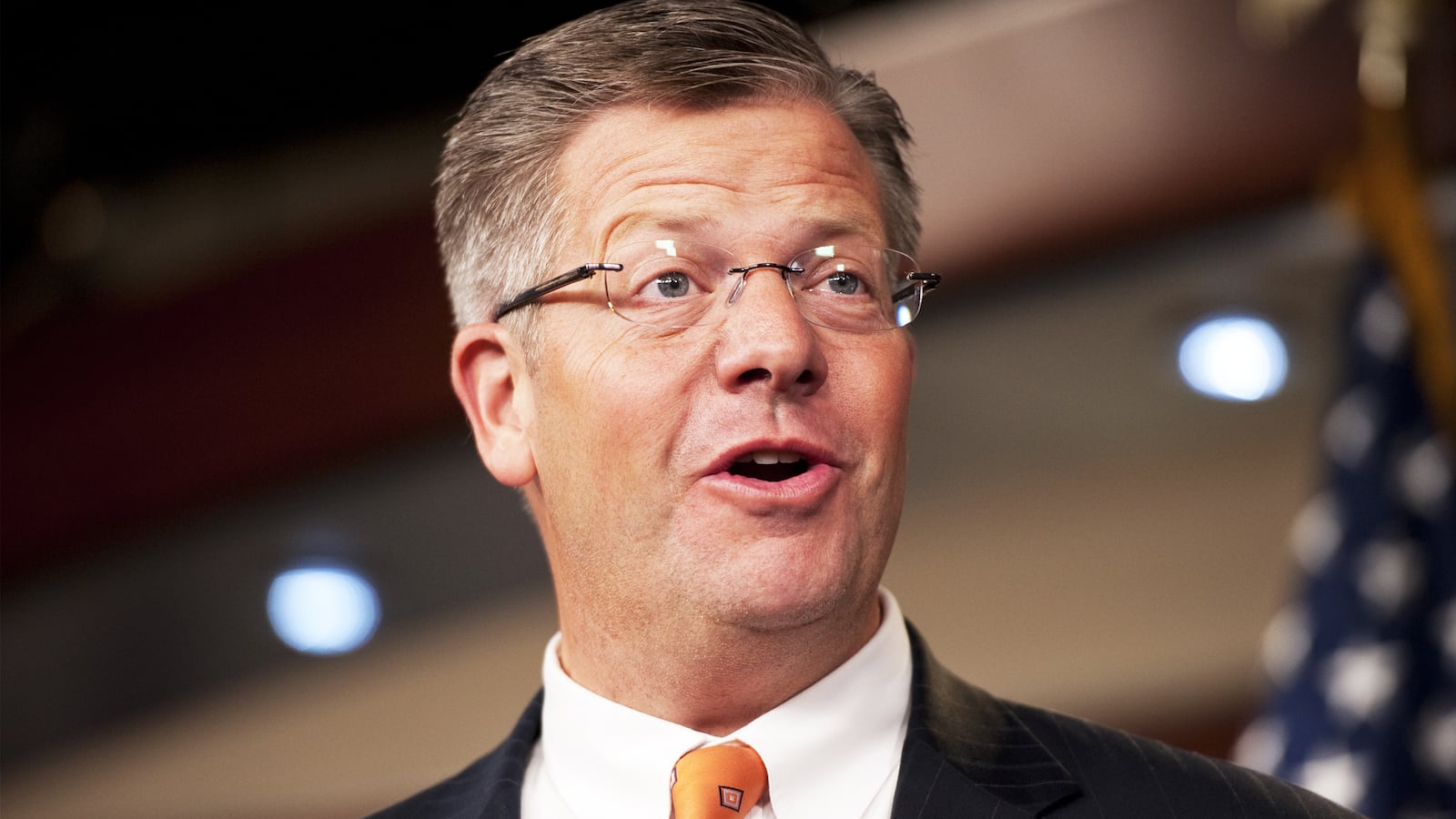As lawmakers from the House and Senate hammer out the details of a major defense spending bill, the Chinese government is quietly pushing Congress to remove language that it deems “negative” towards Beijing, The Daily Beast has learned.
Hong Lei, the consul general of the Chinese consulate in Chicago, sent a four-page letter dated June 26 to U.S. Rep. Randy Hultgren (R-IL) objecting to nine sections in the House version of the 2019 National Defense Authorization Act (NDAA), including sections relating to missile defense exercises, Arctic policy, Chinese tech giants Huawei and ZTE, Taiwan, Hong Kong, Chinese meddling in democracies, and Beijing-funded Confucius Institutes.
Hong also criticized the NDAA’s designation of China as a U.S. “strategic competitor,” saying that the term reflected a “cold-war and zero-sum game mentality,” according to a copy of the letter reviewed by The Daily Beast.
Hong asked the congressman to “delete above-mentioned negative contents regarding China from the act and make sure that no more similar contents are added when the Congress and Senate reconcile their differences on the texts.”
Rep. Hultgren’s office confirmed that they had received the letter, and added that Hultgren met with Hong shortly after receiving it.
The House passed their version of the NDAA on May 24, with the Senate following suit on June 18; Hong sent his letter a week later. Lawmakers from the House and Senate are now conferencing to merge the two bills.
In recent years, NDAAs have become more hawkish on China as Chinese President Xi Jinping has pushed the country to exert more power abroad. This year is no exception.
“Certain provisions of the bill including military spending side recognize China emerging as more a competitor,” said Elsa Kania, who researches Chinese defense innovation and emerging technologies at the Center for a New American Security. The bill also “attempts to respond more forcefully to strategic advances in Chinese technology.”
That hawkish attitude was reflected in FBI Director Chris Wray’s comments at the Aspen Security Forum on July 18, when he stated that China represents the “broadest, most challenging, most significant threat we face as a country."
Hong’s letter stated Beijing’s displeasure with the measure that would ban the U.S. government from buying equipment from ZTE and Huawei, both of which have come under suspicion for their close ties to the Chinese government.
In April, the Commerce Department prohibited U.S. companies from selling part to ZTE, citing company violations of sanctions against Iran and bringing its operations to a standstill. A subsequent deal between Commerce and ZTE lifted the ban after the company agreed to pay a large fine and shuffle its leadership. An NDAA amendment seeks to reinstate that ban.
“By doing this, the U.S. is imposing restrictions on normal trade activities between China and the U.S. and encouraging protectionism under the excuse of ‘national security,’” Hong wrote. “China is strongly opposed to these acts as they go against market rules and international norms and undermine China-U.S. relations.”
The letter also objected to the U.S. intelligence assessment that China attempts to interfere in the democratic processes of other countries. Hong called these claims “completely groundless” and “extremely harmful to our bilateral relations.”
The consul general found fault with the NDAA’s stated support for U.S. arms sales to Taiwan and for high-level exchanges between U.S. and Taiwanese officials. “If the U.S. crosses the red line on Taiwan question, China will have to take serious countermeasures,” Hong wrote.
It’s not the first time China has expressed displeasure with the spending bill. And, if last year’s results are any guide, it won’t be the last.
“The one thing they were particularly nervous about last year was they had language that would allow the U.S. Navy to do port calls in Taiwan,” said Julian Ku, a law professor at Hofstra University in New York. In the end, though, “that language got watered down.”





